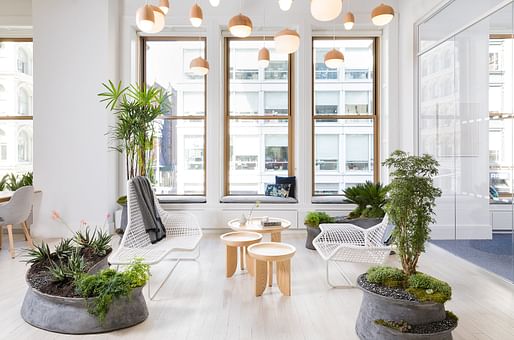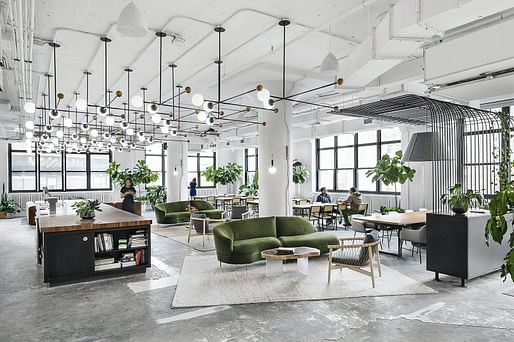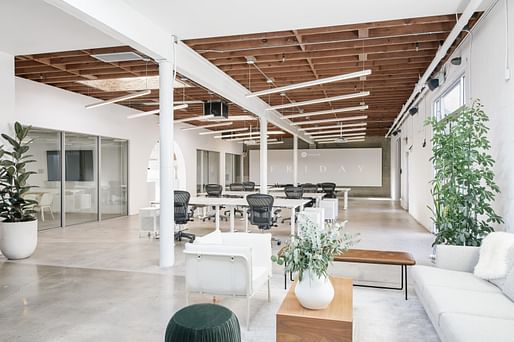

Following almost two years of work-from-home orders, businesses and governments are seeking to bring employees back to traditional workplaces. While working from home will continue to form part of many businesses’ employment structures in the long term, a separate question lingers over what the office of the future may look like.
A new report by NEXT Energy Technologies titled “The Case for Office Space: How Buildings Need to Change to Suit a Climate-Conscious, COVID-Weary Workforce” suggests that many employees will only accept office environments that respond to the needs of human health and the climate crisis. NEXT’s findings, available to download here, were the result of a survey carried out among over 450 remote employees and more than 150 senior managers across business verticals, which expose areas of significant alignment and divergence over how future offices should be designed and operated.
“Employees will not settle for the offices they once had; they want healthier work environments that better account for their personal health and overall sustainability,” says the report. “They want spaces with natural light and renewable energy sources, and no single-use materials. They want the sustainable office of the future, and if they don’t get it, they’re willing to change jobs.”

The report finds that 85% of managers and 79% of employees believe productivity has been unaffected or improved since their businesses switched to remote working. However, while only 15% of employees want to return to their offices full-time, 32% of managers will require them to do so, with another 33% requiring employees to return on a hybrid schedule.
The report uncovers major concerns from employees of how their previous office spaces impacted their health and strong views over changes to workplace design they wish to see implemented. 57% of employees said working in the office negatively impacted their health, with 37% specifically identifying a lack of natural light as impacting their health. Going forward, 67% of employees want to see more comfortable design features in offices, with 39% identifying a lack of natural light as their single biggest complaint; a factor second only to long commuting.
Despite these concerns, only 24% of managers said they would consider improving access to natural light and more windows in offices. Instead, employers have identified the need to improve sanitation (51%), increase space between workstations (46%), and improve HVAC systems (45%). Nevertheless, it appears that employees hold a degree of power over changes to the workplace. 74% of employees said they would consider leaving their job without changes to their workplace; a trend recognized by 72% of managers.

In addition to concerns over health and wellbeing, employees are also forming a link between human health and climate change and expect their future offices to embrace more sustainable design features. 83% of employees believe the climate plays a direct role in their health, while 80% of managers said they would improve their office’s sustainability to retain employees. However, almost one third of companies admit to not actively taking steps to address climate change through office design.
There also remains a divergence between employees and managers on what design features should be prioritized to help office environments combat climate change. 66% of employees want their offices to embrace renewable energy, while 51% want to see an end to single-use plastics. However, while 53% of managers are willing to embrace energy-saving features, 62% identify water-saving features as a primary focus. Only 19% see a concern with single-use plastics.
Office spaces are one of a number of building typologies facing upheaval in the aftermath of COVID-19. Previously, we have asked how the pandemic will impact the long-term design of schools, airports, and senior living facilities. Earlier this year, we asked our own readers about their plans for returning to architecture offices, the results of which can be seen here.
6 Comments
100% of respondents said they want their workspaces antiseptic, white, with few people and many plants.
Bonus points for restrooms with 'waterless' urinals. (But the secret's out: we all know they just drain into the parking lot planters.)
112% of respondents said they want an open bar in their workplace.
And 67% reported not liking the other 53%.
Management would like to thank all respondents for their participation and would like it to be known that their suggestions will be taken under advisement.
lol
Block this user
Are you sure you want to block this user and hide all related comments throughout the site?
Archinect
This is your first comment on Archinect. Your comment will be visible once approved.